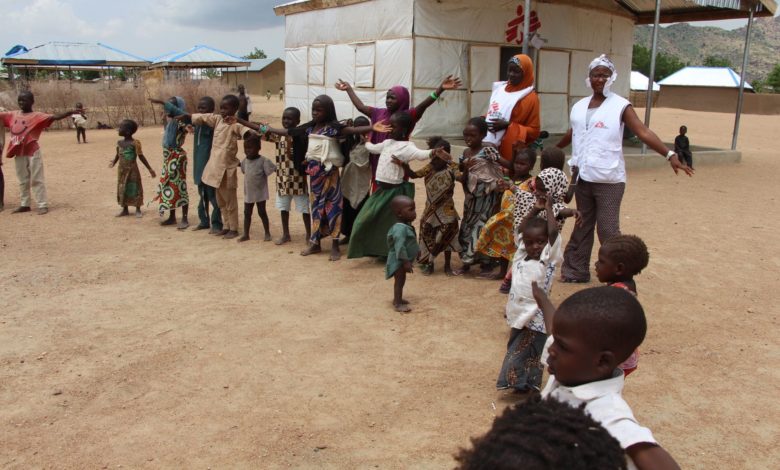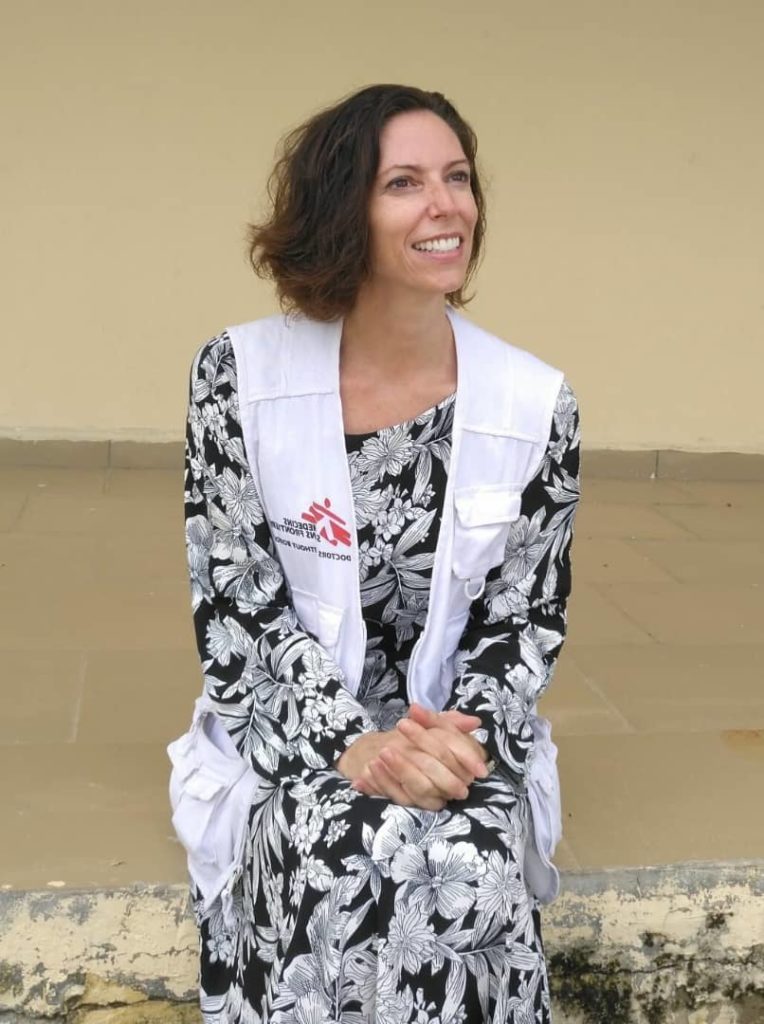Nigeria: MSF Spotlights Mental Health Struggles Of Children Hit By Insurgency

In Borno, children can draw assault rifles better than a football or an animal. It is their reality and weapons have shaped their everyday lives.
Some of them are in Gwoza, a garrison town in northeast Nigeria’s Borno state.
It is home to 60,000 people, many of them displaced from their homes elsewhere by the conflict.
Living conditions are difficult, there is little humanitarian aid, and frequent clashes take place between the military and armed groups.
Many people in Gwoza have witnessed acts of violence or lost loved ones, livelihoods and homes as they fled in search of safety.
This includes children, many of whom arrived in Gwoza alone.
But away from the physical disruption, there is a mental health crisis that is usually disregarded, especially among the children who have to grow through the insurgency.
International organisation, Medecins Sans Frontieres (MSF) is one of the few aid groups that pay special attention to the mental health of displaced persons.
In an interview, Kyla Storry, MSF’s mental health activity manager in Gwoza, describes her work helping adults and children cope with their experiences.

“It seems like there is no one in Gwoza who has not been affected by the insurgency and conflict, and this includes children.
“Many children have lost family members to death and abduction, they’ve been uprooted from their home and forced to flee, and some have been abducted themselves.
“Life in their community has changed dramatically, and parents and caregivers are highly stressed, which affects the well-being of children.
“We see children who are wetting the bed, having nightmares and experiencing problems at school,” Storry said.
She emphasized that children tend to act out what they know, so some that have been exposed to violence engage in play that includes shootings and killings with their friends.
More people affected
People in Gwoza have a wide range of mental health needs.
While some of these are typical of the pressures related to daily life anywhere in the world, many are directly and indirectly related to the recent insurgency and the ongoing conflict, Storry noted.
According to her, issues such as grief and loss, trauma, the stressors of living in a camp for displaced people, a lack of employment, constant safety concerns and food insecurity can affect the ability of people to cope and function.
“Our work in Gwoza focuses on helping people learn ways to manage the issues in their life so that they can live the best they can in these difficult circumstances.
“First of all, I would like to highlight that life goes on, despite difficult conditions.
‘The people living in Gwoza demonstrate a high level of resiliency, which is helping them to survive in the current context.
“For many adults, their religious faith is particularly important at a time like this and prayer is a well-used coping technique.
“For children, engaging in positive play, and having a caregiver who can comfort and cuddle them when needed, is very important,” she added.
MSF’s work, alongside local health authorities, is regularly made up of success stories.
She, however, added that the situation remains extremely worrying. Already it is 10 years since the conflict started.
“This longterm crisis – which affects more than 60,000 people in Gwoza and as many as 1.8 million people across Borno state – prevents most people from imagining a future for themselves and causes great psychological distress.
“As long as the crisis lasts, the need for mental health support will continue to grow. It’s crucial that mental healthcare is available to children and adults living in this situation,” she added.
MSF’s response
MSF has invested in mental health services in Gwoza through staffing, education and training.
Community mental health workers have been hired to provide awareness and education to local people about mental health.
They talk to both adults and children about common concerns and screen those who might benefit from counselling.
Counsellors have received training to provide care not only to children in need but also to their families, as the issues these kids are dealing with often affect everyone in the home.
Storry said, “One of my favourite activities each day is the group we offer for caregivers and young children who are suffering from issues like malnutrition, amputation, severe burns and life-threatening illnesses.
“In this group, we use play as a way of educating caregivers about the importance of engaging with and responding to children.
“We teach child-rearing strategies, provide an opportunity for caregivers to discuss the challenges they face and get support from their peers, and encourage the development of a strong bond with their children.
‘It’s always a fun group to attend and gives everyone a needed break from the daily work in the hospital ward,” she added.
Support Our Journalism
There are millions of ordinary people affected by conflict in Africa whose stories are missing in the mainstream media. HumAngle is determined to tell those challenging and under-reported stories, hoping that the people impacted by these conflicts will find the safety and security they deserve.
To ensure that we continue to provide public service coverage, we have a small favour to ask you. We want you to be part of our journalistic endeavour by contributing a token to us.
Your donation will further promote a robust, free, and independent media.
Donate HereStay Closer To The Stories That Matter




